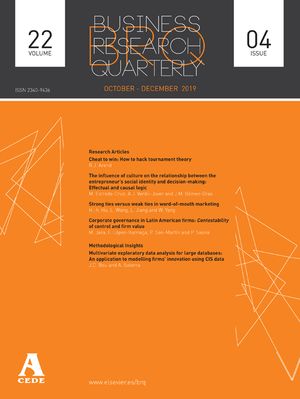Después de dos décadas en las que la gestión de calidad se ha incorporado al vocabulario de los directivos, esta materia sigue teniendo una importancia significativa en la investigación acerca de organización de empresas. Concretamente, la Gestión de Calidad Total (GCT) y la norma ISO 9000 son las dos áreas que más se han estudiado. A pesar de sus grandes diferencias, estos dos sistemas han sido en ocasiones confundidos en el mundo empresarial. La presente investigación es una nueva contribución al conocimiento de la relación existente entre GCT e ISO 9000 basada en un estudio empírico. Mientras estudios anteriores han analizado ambos sistemas separadamente, este trabajo lo hace conjuntamente utilizando una misma muestra. Para profundizar en el estudio de su efecto en los resultados se han tomado como base dos teorías organizativas, la teoría institucional y la de recursos y capacidades. Los datos para la investigación se han obtenido de una amplia muestra de empresas industriales españolas. Se utilizan datos subjetivos de corte transversal y objetivos longitudinales. Las conclusiones ofrecen nueva evidencia de las ventajas de la implantación de un sistema de GCT y reflejan las consecuencias implantar un sistema de gestión de calidad únicamente debido a presiones externas.
After more than two decades since it became part of managers’ everyday lexicon, quality management is still an integral part of research in management. In particular, Total Quality Management (TQM) and ISO 9000 have taken the centre stage. However, they have been commonly confused in the business environment as to what the differences are. This research is a new contribution to the knowledge on the relationships of TQM and ISO 9000 based on recent empirical data. While past studies have considered them separately, we study them together in one study. We have partly based our study in two organizational theories to explain different effects in performance: institutional theory. and resource based view. The data for this research has been obtained from a large sample of Spanish industrial companies. Longitudinal objective data has also been used. Our conclusion offers newly found support to the advantages of adopting a TQM policy and reflects on the consequences of implementing a quality management system mainly driven by external pressures.




